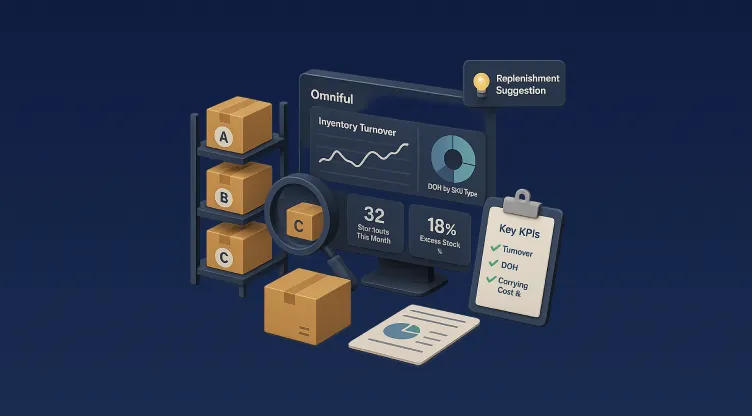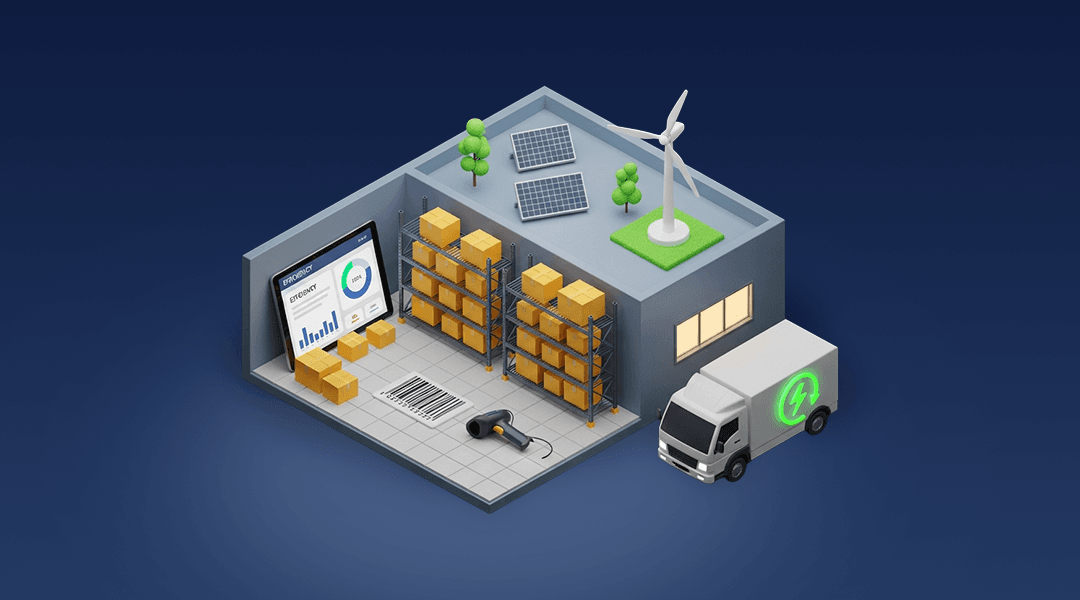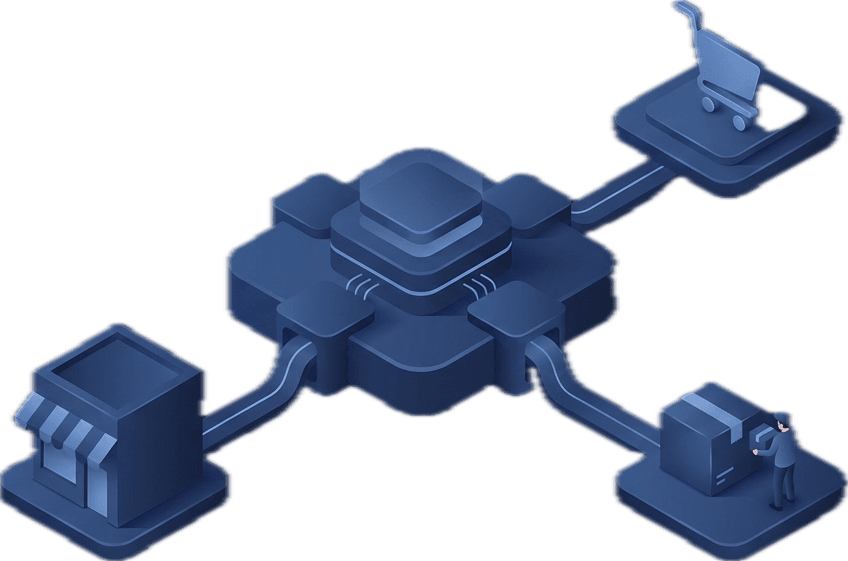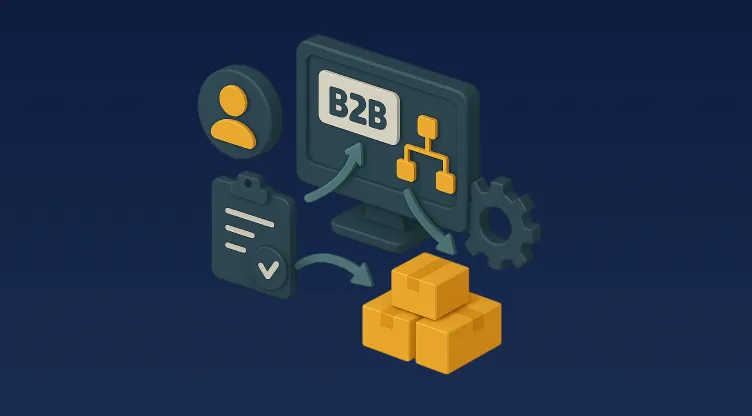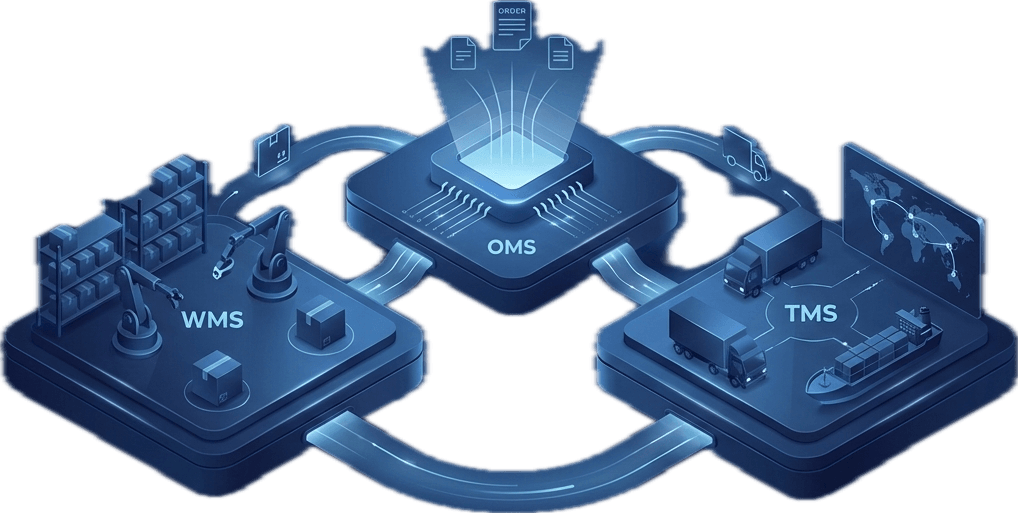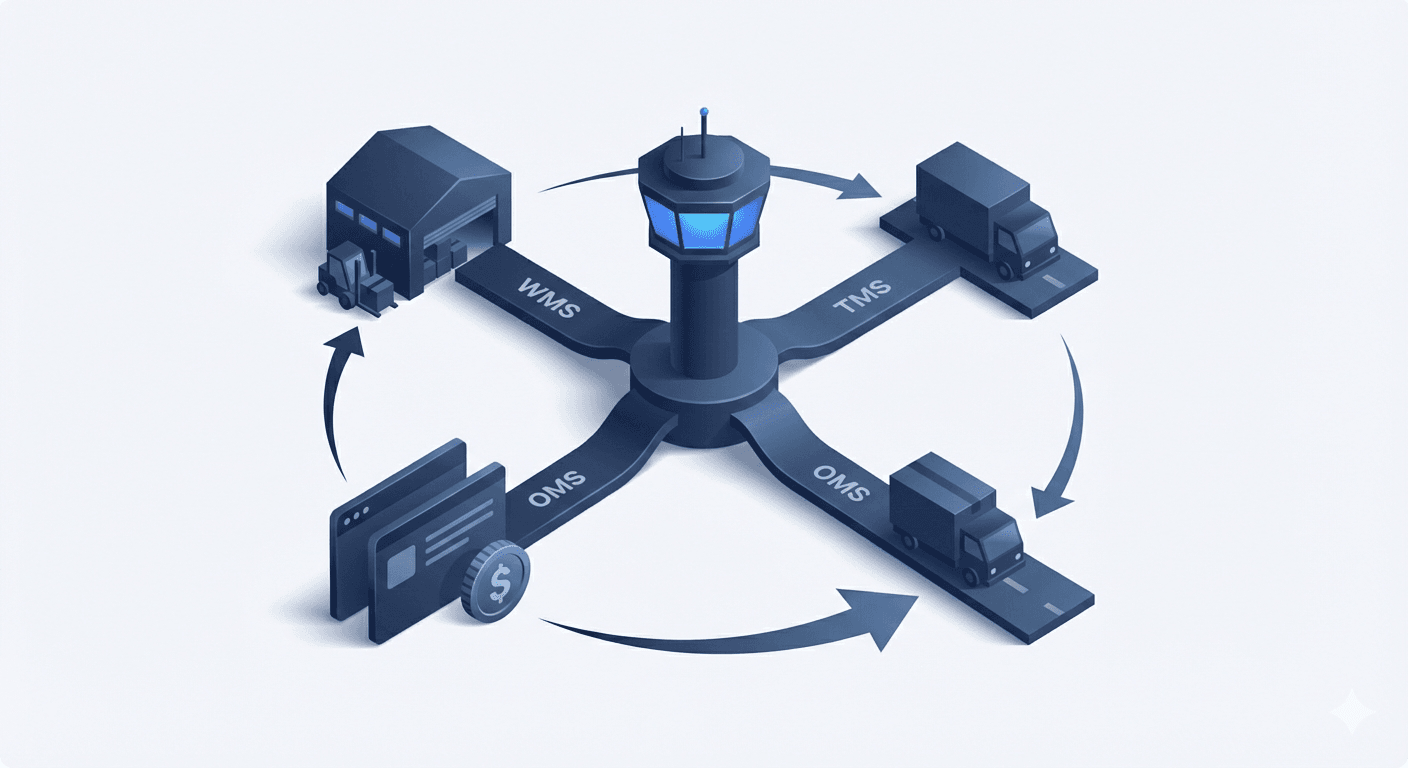Top 10 Odoo Alternatives for Your Business

Table of Contents
Around 95% of companies saw improvements in their business processes after using ERP systems. With these growing solutions, how can companies tap the right one for their operations? Choosing the proper enterprise resource planning (ERP) software shapes how businesses manage their operations effectively, ERP systems and software for SMEs going mainstream.
The ERP software request was predicted to rise from $182.22 billion in 2023 to $202.69 billion in 2024 at a complex periodic growth rate (CAGR) of 11.2.
Advanced companies need robust results that streamline processes, improve effectiveness, and scale with growth. Odoo has established itself as the go-to ERP software for SMEs, yet various associations seek preferred solutions that better align with their specific conditions.
Top Reasons to Consider an Alternative to Odoo ERP
ERP execution impacts every aspect of business operations. While Odoo delivers core functionality, various factors drive companies to explore different market players.
- Customization and Scalability Challenges: Odoo's framework can feel limiting for businesses with unique workflows. Custom variations often offer many development options. As operations grow, issues may arise while handling high sales volumes. Companies may need to look for better open-source ERP software with better customizations than Odoo.
- Support and Implementation Hurdles: Implementation timelines often exceed original estimates. Lack of specialized support and evidence can slow down the finding of solutions. Hence, companies hunt for platforms with skilled experts offering customizations.
- Industry-Specific Limitations: General ERP features may not address technical industry conditions. Manufacturing companies need advanced product planning, healthcare associations require strict compliance features, and retail businesses demand flawless omnichannel capabilities.
The Top 10 Best Odoo ERP Alternatives You Need To Know About
If you're looking for stylish open-source ERP alternatives to Odoo or considering cloud-based ERP systems, we've got you covered. Check out this list of the best WMS and OMS platforms with multiple benefits.
For businesses seeking Odoo, here is a detailed comparison of the top supply chain optimization platforms available in 2025.
| Solution | Key Features | Pros | Cons | Pricing | Best For | Implementation Time | User Ratings |
|---|---|---|---|---|---|---|---|
| Omniful | AI-powered automation, Real-time analytics, Workflow orchestration, Unified inventory, Rapid integration, Automated Processes, Swift deployment, Modern architecture, Proven efficiency gains, 24/7 support | Rapid integration, Modern architecture, Proven efficiency gains, 24/7 support | Recent market entry | Custom pricing | Mid-sized to growing enterprises | 2–4 weeks | High satisfaction (40% efficiency gains) |
| Acumatica | Advanced financials, Multi-entity management, Project accounting, Distribution tools, Real-time analytics | Financial depth, Flexible deployment, Strong distribution | Partner dependent, Complex setup | Consumption-based | Organizations needing financial control | 6–12 weeks | 4.4/5 (G2) |
| QuickBooks Enterprise | Financial management, Inventory tracking, Industry reporting, Integrated payroll, Cash forecasting | User-friendly, Strong accounting, Cost-effective | Limited scalability, Basic features | From $1,740/year | SMBs seeking simplified finance | 1–2 weeks | 4.3/5 (Capterra) |
| Spindl | Workflow automation, Integration hub, Process designer, Real-time monitoring, API architecture | Best open-source ERP alternative to Odoo, Strong integrations, Modern interface | Growing platform, Limited history | From $99/user/month | Process automation-focused businesses | 2–3 weeks | 4.2/5 (G2) |
| ClickUp | Task management, Resource planning, Custom workflows, Time tracking, Collaboration tools | Strong collaboration, Intuitive interface, Affordable | Basic financials, Limited ERP features | From $7/user/month | Project-centric organizations | 1–2 weeks | 4.5/5 (G2) |
| SAP Business One | Production planning, Quality control, Material planning, Cost accounting, Shop floor control | Manufacturing depth, Global compliance, Strong analytics | Complex setup, High investment | From $150/user/month | Manufacturing enterprises | 3–6 months | 4.3/5 (Capterra) |
| Infor Styline | Industry workflows, Supply chain tools, Quality assurance, Production scheduling, Asset management | Industry expertise, Specialized features, Reliable support | Limited versatility, Industry focus | Custom pricing | Specialized manufacturing | 2–4 months | 4.2/5 (G2) |
| Tipalti | Payment automation, Invoice processing, Tax compliance, Reconciliation, Vendor management | Payment expertise, Compliance tools, Deep automation | Focused features, Limited scope | Volume-based | Complex payment operations | 4–8 weeks | 4.4/5 (Capterra) |
| Oracle NetSuite | Financial management, Revenue recognition, Global operations, Compliance tools, Business intelligence | Financial depth, Strong compliance, Scalability | Premium pricing, Complex setup | From $999/month | Enterprises needing depth | 3–6 months | 4.3/5 (G2) |
| Epicor | Production control, Quality management, Distribution planning, Supply chain tools, Industry analytics | Manufacturing focus, Strong features, Proven track record | Long setup, Complex pricing | Custom enterprise | Complex manufacturing | 4–8 months | 4.2/5 (Capterra) |
Choosing the Best ERP Alternatives to Odoo in 2025

1. Omniful
Companies using Odoo find Omniful's intelligent platform transformative. While Odoo requires vast module configuration, Omniful delivers a well-integrated result that boosts productivity and automates the entire process. This is one of the realistic ERP systems that appeals to businesses vexed with Odoo's damaged module approach and execution delays.
Key Features:
- AI-powered process automation
- Real-time analytics dashboard
- Smart workflow unity
- Integrated inventory and order management
- Rapid integrations
- Automated business rules machine
- Warehouse and transportation management
- Return management solutions
- Comprehensive reports and analytics
- Plug & Play integration with third-party systems
- Shipping gateway support for flawless logistics
Pros: Swift deployment, ultramodern architecture, proven efficiency gains
Cons: Recent market entrant
Pricing: Custom pricing based on business needs
Best For: Growing enterprises seeking streamlined operations
Ratings: High satisfaction with proven 40% efficiency enhancement
Customer Testimonial: "After switching from Odoo, Omniful reduced our operational mistakes by 30% within three months.
2. Acumatica
Businesses tired of Odoo's limited fiscal capabilities find better control with Acumatica's all-in-one platform. Where Odoo needs multiple modules and configurations for advanced fiscal operations, Acumatica delivers sophisticated accounting features in a unified system. The platform mainly excels for associations demanding deeper fiscal insights and multi-entity performance.
Key Features:
- Advanced fiscal orchestration
- Multi-entity management
- Project accounting systems
- Distribution optimization
- Real-time financial numbers
Pros: Advanced financials, flexible deployment, strong distribution features
Cons: Co-dependent implementation
Pricing: Consumption-based model
Best For: Organizations requiring advanced fiscal control
Ratings: 4.4/5 on G2
3. QuickBooks Enterprise
Companies baffled by Odoo's complex fiscal modules appreciate QuickBooks Enterprise's straightforward approach. This result bridges the gap between Odoo's expansive but complex features and essential business requirements, offering strong account capabilities without overwhelming users.
Key Features:
- Intuitive financial operations
- Advanced inventory tracking
- Industry-specific reporting
- Integrated payroll
- Cash flow prediction
Pros: User-friendly interface, strong accounting core, cost-effective
Cons: Limited scalability for large enterprises
Pricing: From $1,740 annually
Best For: SMBs seeking simplified financial control
Ratings: 4.3/5 on Capterra
4. Spindl
Organizations hitting limitations with Odoo's robotization capabilities find enhanced workflow control in Spindl. The platform excels where Odoo's process robotization becomes restrictive, offering deeper customization and flexible integration options.
Key Features:
- Advanced workflow robotization
- Cross-platform integration
- Visual process developer
- Real-time monitoring
- API-first architecture
Pros: Deep automation capabilities, strong integrations, ultramodern interface
Cons: Growing feature set
Pricing: From $99/user/month
Best For: Process automation-focused businesses
Ratings: 4.2/5 on G2
5. ClickUp
Companies finding Odoo's design operation modules restrictive discover enhanced capabilities in ClickUp's unified approach. While Odoo treats design operations as an add-on, ClickUp prioritizes it at the core while maintaining essential ERP functions.
Key Features:
- Comprehensive task management
- Resource planning tools
- Customizable workflows
- Time tracking system
- Document collaboration
Pros: Strong collaboration features, intuitive interface, affordable
Cons: Limited fiscal capabilities
Pricing: From $7/user/month
Best For: Design-centric associations
Ratings: 4.5/5 on G2
6. SAP Business One
Manufacturing operations that are more complicated than Odoo's manufacturing module find comprehensive capabilities in SAP Business One. This platform delivers the advanced product control and force operation features that Odoo users frequently find missing.
Key Features:
- Advanced production planning
- Material requirements planning
- Quality control system
- Shop floor management
- Cost accounting
Pros: Manufacturing depth, global compliance, strong analytics
Cons: Complex implementation, higher investment
Pricing: From $150/user/month
Best For: Manufacturing-focused enterprises
Ratings: 4.3/5 on Capterra
7. Infor Styline
Organizations demanding deeper industry-specific functionality than Odoo have technical capabilities in Infor Styline. Where Odoo offers generalized results, Infor Styline delivers customized features for specific business conditions.
Key Features:
- Industry-specific workflows
- Supply chain optimization
- Quality assurance tools
- Production scheduling
- Asset management
Pros: Deep industry experts, specialized features, dependable support
Cons: Industry-specific focus limits versatility
Pricing: Custom pricing
Best For: Specialized manufacturing operations
Ratings: 4.2/5 on G2
8. Tipalti
Businesses facing limitations in Odoo's fiscal automation discover enhanced capabilities in Tipalti. This platform excels where Odoo's payment and seller operation features fall short, offering sophisticated robotization for complex financial operations.
Key Features:
- Global payment automation
- Invoice processing
- Tax compliance management
- Payment reconciliation
- Seller portal
Pros: Payment specialization, compliance excellence, automation depth
Cons: Concentrated functionality
Pricing: Volume-based pricing
Best For: Organizations with critical payment operations
Ratings: 4.4/5 on Capterra
9. Oracle NetSuite
Enterprises taking more sophisticated fiscal controls than Odoo offers find comprehensive capabilities in NetSuite. This advanced platform handles complex conditions that frequently push Odoo's limits, particularly in budgetary operations and compliance.
Key Features:
- Advanced financial management
- Revenue recognition
- Global operations support
- Compliance frameworks
- Business intelligence
Pros: Financial complication, strong compliance, scalability
Cons: Premium pricing, complex implementation
Pricing: From $999/month
Best For: Enterprises demanding financial depth
Ratings: 4.3/5 on G2
10. Epicor
Manufacturing operations discovering limitations in Odoo's product features find comprehensive capabilities in Epicor. The platform excels when Odoo's manufacturing modules fall suddenly, particularly when handling complex products and distribution conditions.
Key Features:
- Production control system
- Quality management
- Distribution planning
- Supply chain optimization
- Industry analytics
Pros: Manufacturing focus, strong features, proven track record
Cons: Implementation duration, complex pricing
Pricing: Custom enterprise pricing
Best For: Complex manufacturing operations
Ratings: 4.2/5 on Capterra
How to Choose the Right Odoo Alternative

Identify Your Business Requirements
Launch by setting it so Odoo's functionality does not meet your requirements. Whether it's the complex manufacturing module, limited fiscal controls, or clumsy force operation, understanding these pain points helps identify which style addresses your specific challenges. To find the perfect match, plan your needed features against Odoo's limitations.
Calculate Total Cost of Ownership
Drifting from Odoo involves further than just empowering costs. Consider data migration charges, implicit system customizations, and staff retraining. Numerous researchers offer more transparent pricing structures than Odoo's module-based approach, but factor in perpetration support, ongoing maintenance, and needed structure changes to understand the accurate investment.
Assess Vendor Support and Community
Unlike Odoo's community-centric support model, numerous options offer firm seller support. Estimate the quality of specialized backing, perpetration guidance, and training coffers. Check response times, support availability in your region, and the seller's track record with businesses similar to yours. A strong support frame proves pivotal during the transition period.
The Final Step: Choose Your ERP Solution Wisely
The best Odoo alternative, like Omniful, offers strong features, good value, and room to grow while aligning with your business goals. Take time to evaluate options thoroughly, ensuring your chosen solution supports both current needs and future aspirations. However, consider these recommendations:
- Request detailed demonstrations focusing on your use cases
- Speak with reference customers in your industry
- Evaluate the partner ecosystem
- Consider upcoming scalability needs
- Calculate total ownership costs over 5 years
Ready to level up? Switch to Omniful today— your ultimate ERP solution and perfect choice over other Odoo alternatives.
FAQs
1. What is the best open-source ERP in 2025?
In 2025, Omniful emerges as one of the best open-source ERP solutions available in the market. With its robust features and easy-to-use interface, it solves all business challenges on one platform.
2. How do we migrate from Odoo to a new ERP?
To migrate, start with data mapping, export Odoo data in compatible formats, validate in a test environment, and plan a phased migration approach.
3. What's the typical implementation timeline for Odoo alternatives?
The implementation timeline for Odoo alternatives usually ranges from 3-9 months. However, this depends on the complexity, business size, and needs. Therefore, try opting for simpler options like Omniful.
4. Are cloud-based alternatives more cost-effective?
Yes. Cloud-based ERP alternatives like Omniful, Acumatica, and Infor often offer lower upfront costs, reducing the need for expensive operational costs. With their flexible pricing models, they emerge as cost-effective solutions for all types of businesses.
5. Can smaller businesses benefit from enterprise-grade ERP alternatives?
Yes. Small to even enterprise-level businesses can benefit from these alternatives. Their powerful solutions for handling finances, inventory, and operations, combined with flexible pricing, can help them scale effectively.
6. How important is the implementation partner?
A skilled implementation partner significantly impacts project success and long-term ROI. Moreover, a good partner ensures smooth implementation, reduces risks, and helps maximize the ERP's value.



